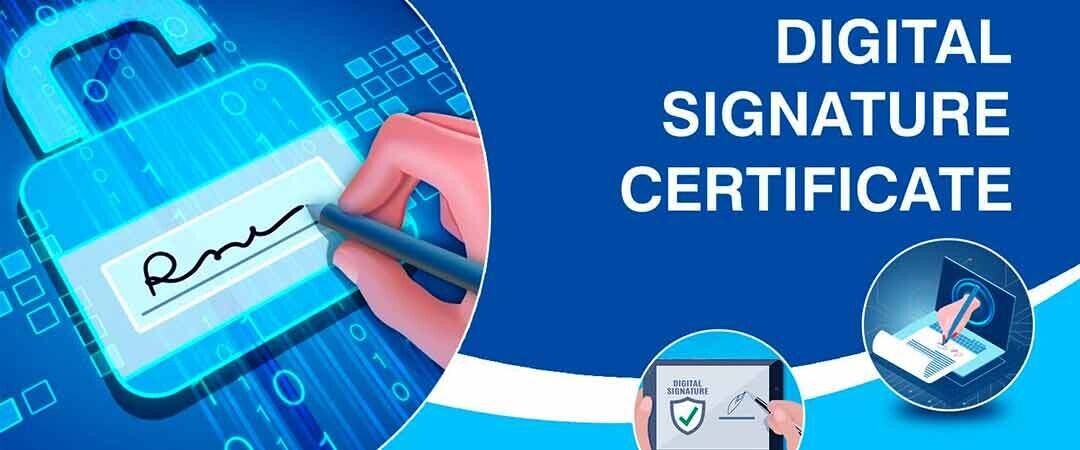DIGITAL SIGNATURE (DSC)
igital signatures are governed by the Information Technology Act, 2000, and the associated rules and regulations, including the Information Technology (Certifying Authorities) Rules, 2000. Digital signatures have legal validity and are widely used for various online transactions and authentication purposes in the country. Here are some key points about digital signatures in India:
-
Legal Framework: The legal framework for digital signatures is primarily provided by the Information Technology Act, 2000. This act recognizes digital signatures as a valid and legally binding means of authenticating electronic documents and transactions.
-
Certifying Authorities (CAs): Digital signatures in India are issued by Certifying Authorities (CAs) accredited by the Controller of Certifying Authorities (CCA) under the Ministry of Electronics and Information Technology. CAs play a crucial role in verifying the identity of individuals or entities requesting digital signatures and issuing digital certificates.
-
Types of Digital Signatures: There are three classes of digital signatures in India:
-
Class 1 Digital Signatures: These are primarily used for validating email and are the lowest level of digital signature. They confirm that the email message was sent by the claimed sender.
-
Class 2 Digital Signatures: These are used for a variety of purposes, including filing tax returns, company registration, and other transactions where security is important. They confirm the identity of the person or entity applying for the certificate.
-
Class 3 Digital Signatures: These are the highest level of digital signatures and are used for e-commerce, e-procurement, and other applications where security is of utmost importance. They are issued only after a physical verification of the applicant's identity.
-
-
Digital Signature Certificates (DSCs): A digital signature certificate (DSC) is an electronic certificate that contains information about the certificate holder, including their name, public key, and the digital signature of the issuing CA. It is used for digitally signing electronic documents.
-
Usage: Digital signatures in India are widely used in various applications, including e-filing of income tax returns, e-tendering, online company registration, digital signing of documents, and more.
-
Validity: Digital signatures issued in India typically have a validity period of one or two years, after which they need to be renewed.
-
Legal Status: Digital signatures in India have the same legal status as handwritten signatures. They are admissible as evidence in court, and their authenticity can be verified using the public key infrastructure (PKI) system.
-
Authentication: To use a digital signature, the person or entity must have a digital signature certificate issued by a recognized Certifying Authority. The digital signature process involves using a private key to generate a digital signature and a public key to verify it.
-
Security: Protecting the private key associated with a digital signature is of paramount importance to ensure the security of the digital signature.
-
Regulatory Authority: The Controller of Certifying Authorities (CCA) is the regulatory authority responsible for regulating and overseeing the functioning of Certifying Authorities and the issuance of digital signatures in India.
Digital signatures are a crucial component of India's digital transformation efforts, and they play a significant role in ensuring the security and authenticity of electronic transactions and communications in the country.


.jpg)